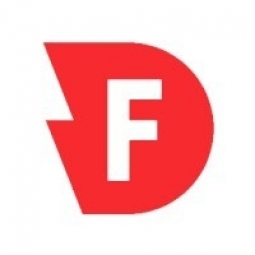Ezora Enhances Financial Control and Analytics for F&B Franchisees with Firebolt's High-Speed Data Warehousing

公司规模
Large Corporate
国家
- Worldwide
产品
- Ezora Platform
- Firebolt Cloud Data Warehouse
- Amazon Aurora
技术栈
- APIs
- Direct Database Connectivity
- Secure File Transfer
- Columnar Storage
- Compression Algorithms
实施规模
- Enterprise-wide Deployment
影响指标
- Productivity Improvements
- Customer Satisfaction
- Innovation Output
技术
- 分析与建模 - 实时分析
- 平台即服务 (PaaS) - 数据管理平台
- 应用基础设施与中间件 - 数据交换与集成
适用行业
- 食品与饮料
- 零售
适用功能
- 商业运营
- 质量保证
用例
- 实时定位系统 (RTLS)
服务
- 云规划/设计/实施服务
- 数据科学服务
- 系统集成
关于客户
Ezora is a scalable platform designed to address financial reconciliation, reporting, and analytics for Food & Beverage (F&B) franchisees. These franchisees consistently face challenges in automating their financial control processes, consolidating financial data, and driving sales and profit growth across their stores. The platform is built to simplify data pipelines and deliver granular, sub-second drill-downs for its customer base. Ezora's platform eliminates the challenges franchisees face by integrating across numerous proprietary systems, simplifying data processing, financial reconciliation, and reporting. The platform offers store performance dashboards that display KPIs derived from sales, inventory, labor, fraud risk, customer experience, and operational cost data. Real-time, daily, weekly, monthly, and year-to-date perspectives allow users to monitor outcomes, trends, and comparisons against targets and benchmarks. Additionally, the platform facilitates the creation of forecasts, targets, and performance comparisons for enhanced planning and decision-making.
挑战
F&B franchisees face challenges in automating financial control processes, consolidating financial data, and driving sales and profit growth. They interact with disparate proprietary applications for operations, including point-of-sale, financials, inventory, and workforce planning systems. Building a unified business view requires manual processes for bookkeeping, reconciliation, and financial reporting, leading to inefficiencies and increased error risks. Complex data integrations are needed to generate KPIs on sales, inventory, labor, fraud risk, customer experience, and operational costs. The advent of services like Uber Eats and DoorDash adds complexity, requiring analytics KPIs to track delivery and financial performance. These challenges, coupled with the need for skilled IT staff, make the status quo difficult for F&B franchisees.
解决方案
Ezora's platform addresses the challenges faced by F&B franchisees by simplifying data integration and automating financial processes. The platform integrates across numerous proprietary systems using custom connectors, simplifying data processing, financial reconciliation, and reporting. Ezora’s Financial Control Engine automates bookkeeping, reconciliation, financial reporting, and consolidation. The Sales and Profit Growth engine empowers managers with data-driven insights to make informed decisions and drive business growth. The platform offers store performance dashboards displaying KPIs from sales, inventory, labor, fraud risk, customer experience, and operational cost data. Real-time perspectives allow users to monitor outcomes, trends, and comparisons against targets and benchmarks. The platform facilitates the creation of forecasts, targets, and performance comparisons for enhanced planning and decision-making. Ezora migrated to AWS in 2016, delivering best-in-class availability, ease of integration, improved scalability, and faster innovation. Data integration uses multiple technologies such as APIs, direct database connectivity, or secure file transfer, addressing varying connectivity requirements, scale, and throughput. Data is consolidated into Amazon Aurora for transactional data, Ezora Data Lake for raw data collection, and Firebolt Cloud Data Warehouse for analytics, reporting, and drill-downs.
运营影响
数量效益

Case Study missing?
Start adding your own!
Register with your work email and create a new case study profile for your business.
相关案例.

Case Study
The Kellogg Company
Kellogg keeps a close eye on its trade spend, analyzing large volumes of data and running complex simulations to predict which promotional activities will be the most effective. Kellogg needed to decrease the trade spend but its traditional relational database on premises could not keep up with the pace of demand.

Case Study
HEINEKEN Uses the Cloud to Reach 10.5 Million Consumers
For 2012 campaign, the Bond promotion, it planned to launch the campaign at the same time everywhere on the planet. That created unprecedented challenges for HEINEKEN—nowhere more so than in its technology operation. The primary digital content for the campaign was a 100-megabyte movie that had to play flawlessly for millions of viewers worldwide. After all, Bond never fails. No one was going to tolerate a technology failure that might bruise his brand.Previously, HEINEKEN had supported digital media at its outsourced datacenter. But that datacenter lacked the computing resources HEINEKEN needed, and building them—especially to support peak traffic that would total millions of simultaneous hits—would have been both time-consuming and expensive. Nor would it have provided the geographic reach that HEINEKEN needed to minimize latency worldwide.

Case Study
Improving Production Line Efficiency with Ethernet Micro RTU Controller
Moxa was asked to provide a connectivity solution for one of the world's leading cosmetics companies. This multinational corporation, with retail presence in 130 countries, 23 global braches, and over 66,000 employees, sought to improve the efficiency of their production process by migrating from manual monitoring to an automatic productivity monitoring system. The production line was being monitored by ABB Real-TPI, a factory information system that offers data collection and analysis to improve plant efficiency. Due to software limitations, the customer needed an OPC server and a corresponding I/O solution to collect data from additional sensor devices for the Real-TPI system. The goal is to enable the factory information system to more thoroughly collect data from every corner of the production line. This will improve its ability to measure Overall Equipment Effectiveness (OEE) and translate into increased production efficiencies. System Requirements • Instant status updates while still consuming minimal bandwidth to relieve strain on limited factory networks • Interoperable with ABB Real-TPI • Small form factor appropriate for deployment where space is scarce • Remote software management and configuration to simplify operations

Case Study
Energy Management System at Sugar Industry
The company wanted to use the information from the system to claim under the renewable energy certificate scheme. The benefit to the company under the renewable energy certificates is Rs 75 million a year. To enable the above, an end-to-end solution for load monitoring, consumption monitoring, online data monitoring, automatic meter data acquisition which can be exported to SAP and other applications is required.

Case Study
Coca Cola Swaziland Conco Case Study
Coco Cola Swaziland, South Africa would like to find a solution that would enable the following results: - Reduce energy consumption by 20% in one year. - Formulate a series of strategic initiatives that would enlist the commitment of corporate management and create employee awareness while helping meet departmental targets and investing in tools that assist with energy management. - Formulate a series of tactical initiatives that would optimize energy usage on the shop floor. These would include charging forklifts and running cold rooms only during off-peak periods, running the dust extractors only during working hours and basing lights and air-conditioning on someone’s presence. - Increase visibility into the factory and other processes. - Enable limited, non-intrusive control functions for certain processes.







